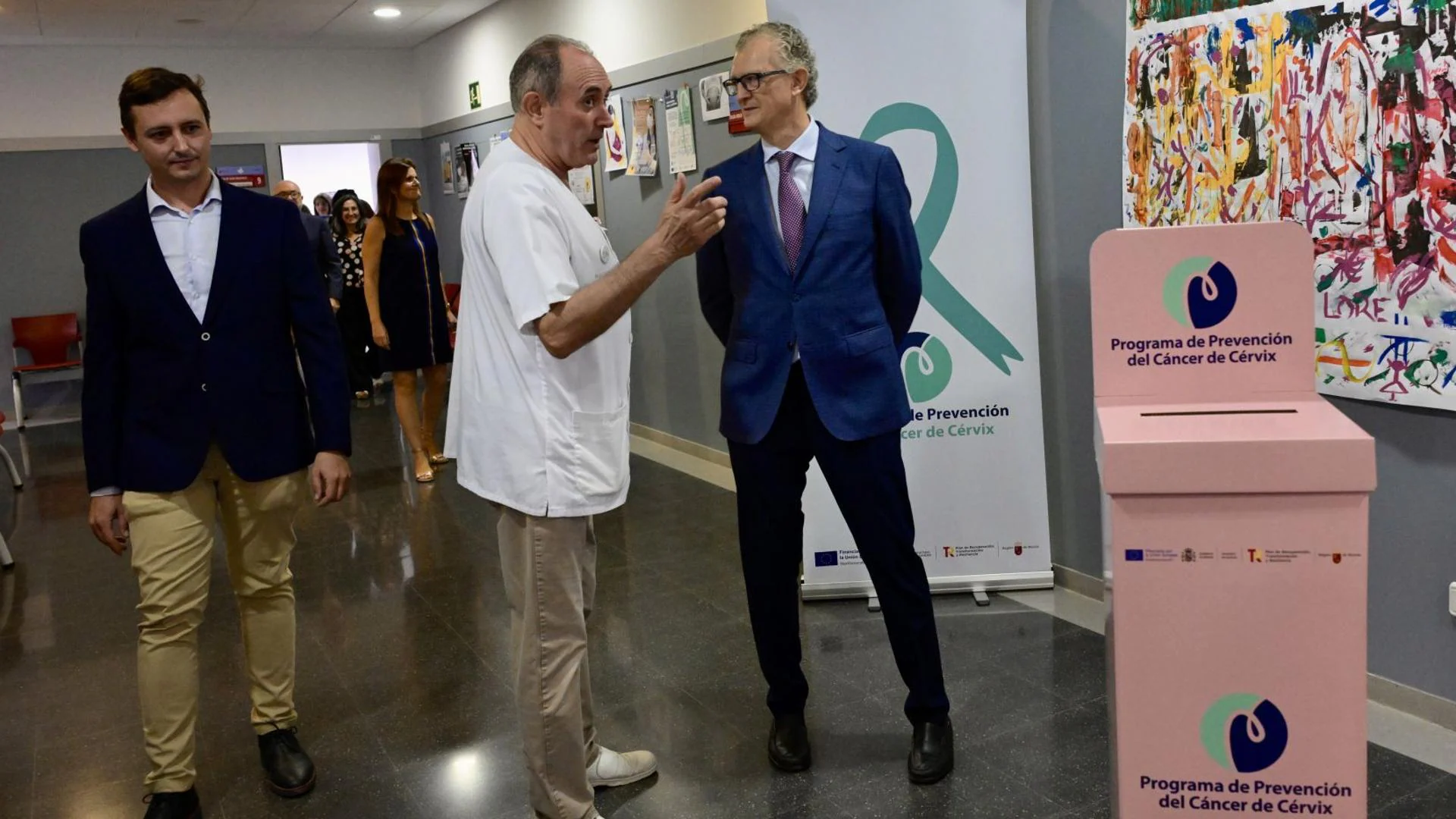
Wednesday, October 16, 2024, 1:12 p.m.
The nearly 3,400 women between 30 and 65 years old who reside in the basic health area of Floridablanca, in Murcia, have been receiving invitation letters this week to participate in the new cervical cancer screening plan, which should be extended to the entire Region in the next five years. The new model follows in the footsteps of breast and colon screening and in this sense replaces the strategy that until now was developed in the cervix, and which involved recruiting patients in consultations for periodic cytology.
All women between the ages of 30 and 65 in the Floridablanca area will be invited by letter to participate. They will be told which pharmacies in their area they can go to pick up a ‘kit’ with which to perform a ‘self-test’ at home. It is a more comfortable and less invasive procedure than cytology, and will rule out the presence of high-grade human papillomavirus, which is the majority cause of cervical cancer. Both in the letter and in the pharmacy, patients will be able to find out how to carry out the ‘self-take’. They will also have information at murciasalud.es. Once the ‘self-take’ has been collected, they must deposit it in a pink mailbox installed at the health center, inside an envelope that will also be provided to them. Ideally, the shot should be delivered on the same day. “They will be able to do it without queues, without having to make an appointment, and from the health center the sample will be sent to the Microbiology service of Virgen de La Arrixaca,” explained this Wednesday the Minister of Health, Juan José Pedreño, during a visit to the center. of Floridablanca health to publicize the new plan.
In La Arrixaca, PCR will be performed to determine the presence of human papillomavirus (HPV). In most cases, the result will be negative, Pedreño recalled. They will be informed of this by letter and reminded that they must take the test again within 5 years.
If the result is positive, the patient will receive a call from the midwife at her health center, who will schedule her for a cytology. Once the sample of this cytology has been analyzed in the Pathological Anatomy service of La Arrixaca, if there is a lesion, the patient will be summoned to the Gynecology service of their reference hospital for a coloscopy, a more specific test for the diagnosis of the lesion. .
The ‘self-take’ is launched after having been tested in the Floridablanca health center itself, with success. Patients have all the guarantees, and if the test does not give a correct result, they will be informed of this and will be scheduled so that they can consult with their midwife how to perform the test.
The new cervical cancer screening was agreed upon in 2019 between the Ministry of Health and the autonomous communities within the framework of the Interterritorial Council. The national strategy gave five years for its implementation, but as has happened with other screenings, the start has not been easy or quick in many territories. Nor in the Region of Murcia. Already in 2022, a first pilot project was launched at the Floridablanca health center. Now the plan is finally started once the results have been analyzed. Once again, the piloting begins in Floridablanca, and the Vistabella health center will be added soon, also in health area VII.
In parallel with this strategy, school vaccination campaigns against HPV are being developed. In 1994, 11-year-old girls began to be vaccinated, and since last year, boys have also been immunized. Coverage reaches 91% in the first dose and 86% in the complete regimen, highlighted the Health Minister. This year, as a novelty, a single dose will be provided to both boys and girls, in application of scientific evidence. Pedreño recalled that the eradication of cervical cancer is possible with the combination of screening and vaccination. Last year, 61 cases of this cancer were detected in the Region of Murcia.
The new screening plan will be aimed at women between 30 and 65 years old. For women between 25 and 29, the current ‘opportunistic’ model is maintained. That is to say: recruitment in consultations for screening. The counselor recalled that many of these young women are already protected by the human papilloma vaccine, which began to be administered in the Region in 1994. To those women between 25 and 29 years old who were not vaccinated at the time or come from other countries In those who do not have vaccination, it is recommended that they consult with their doctor to perform cytology.
